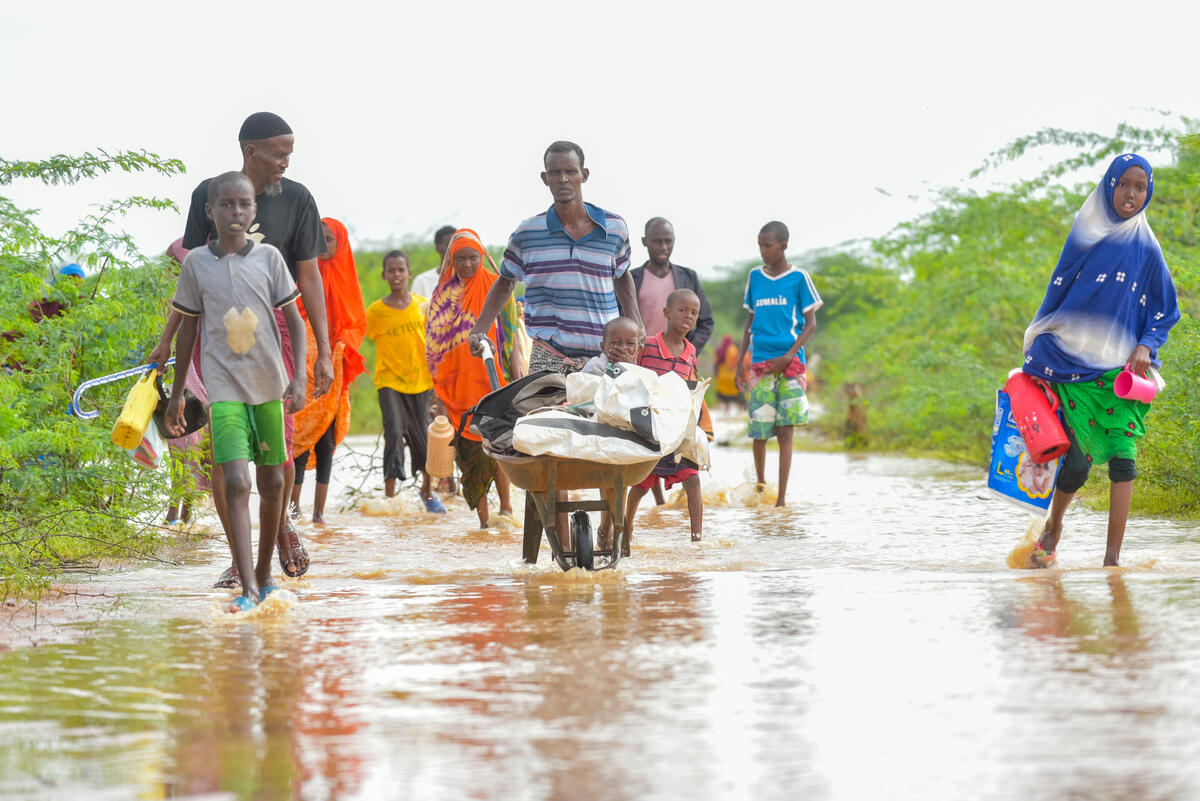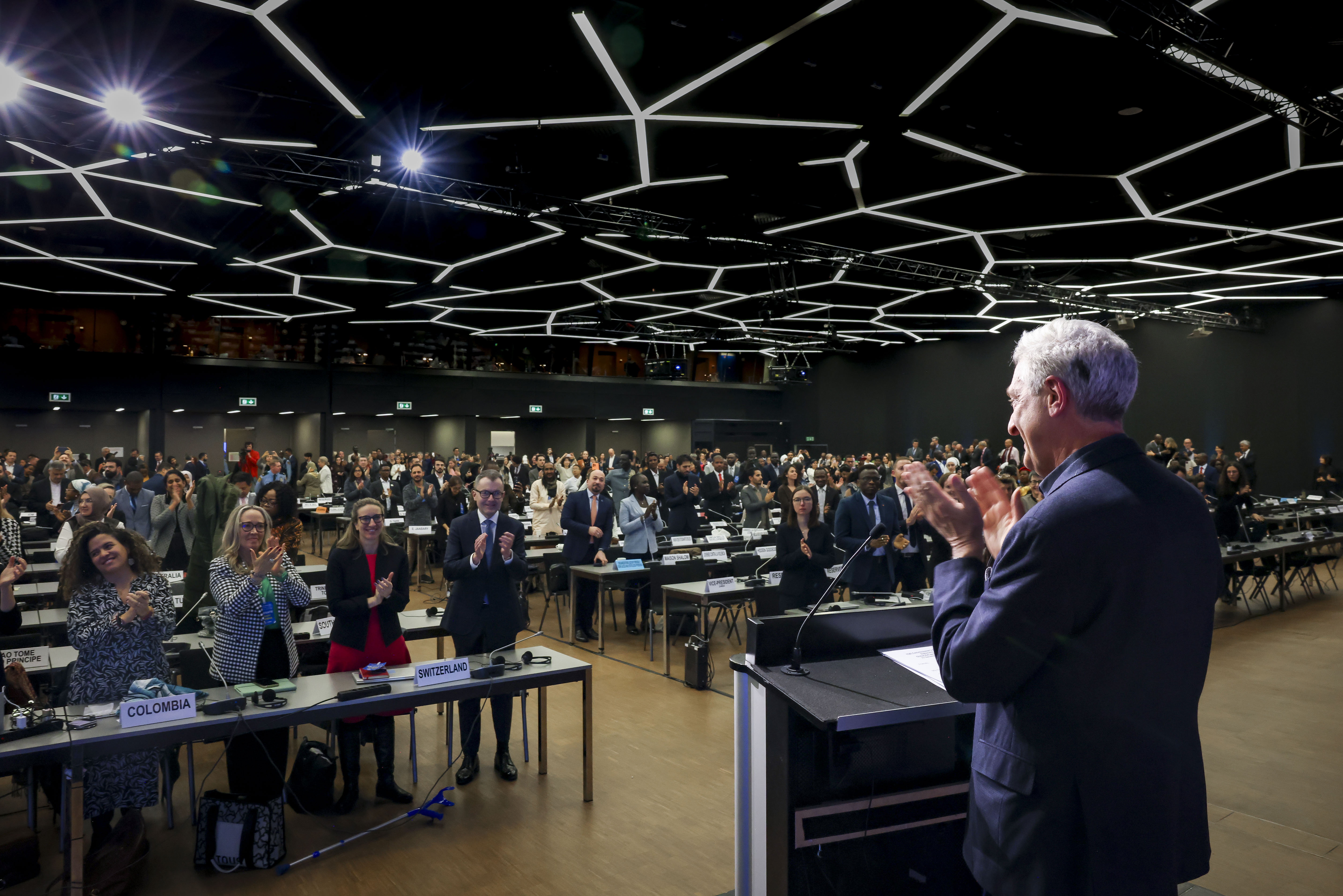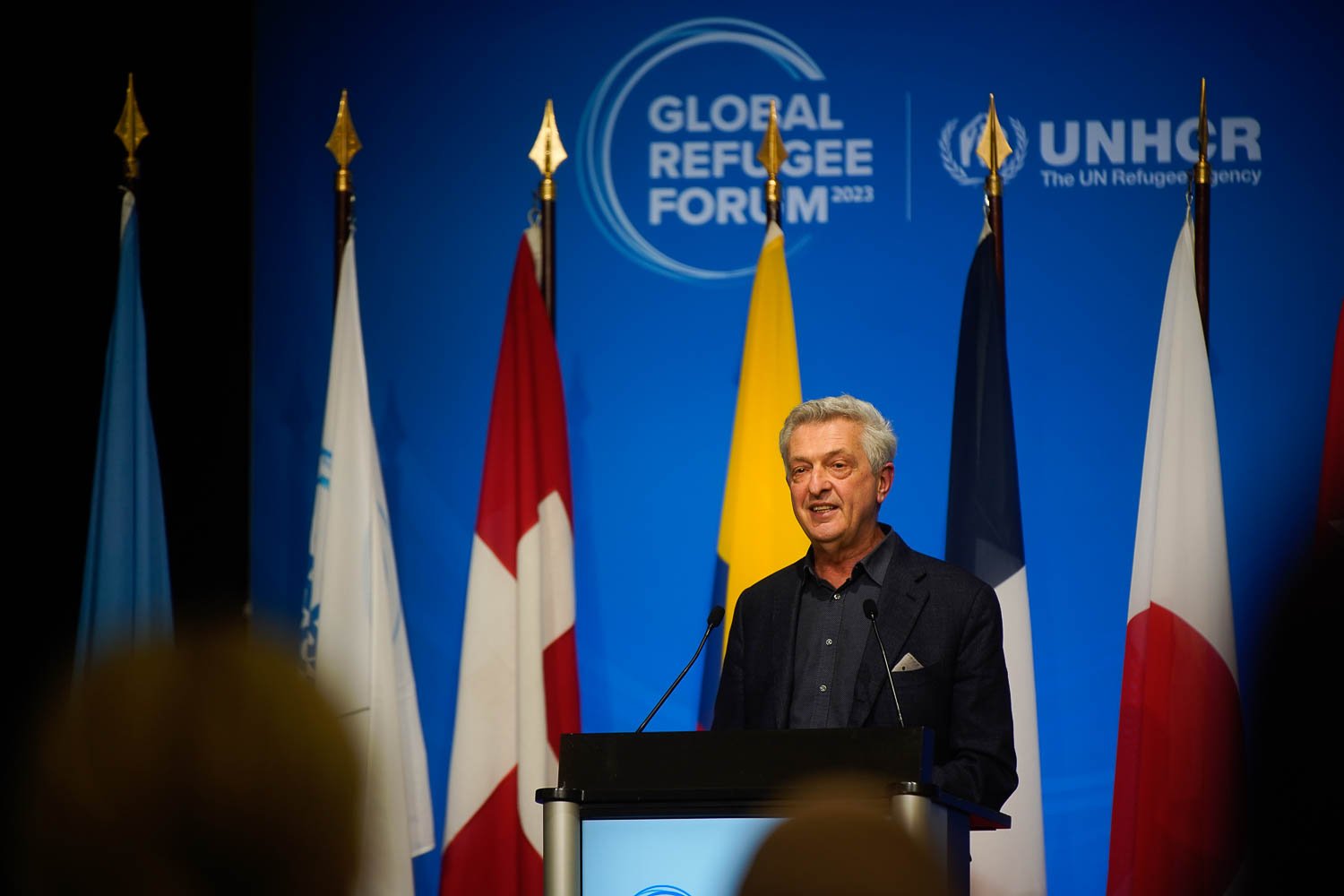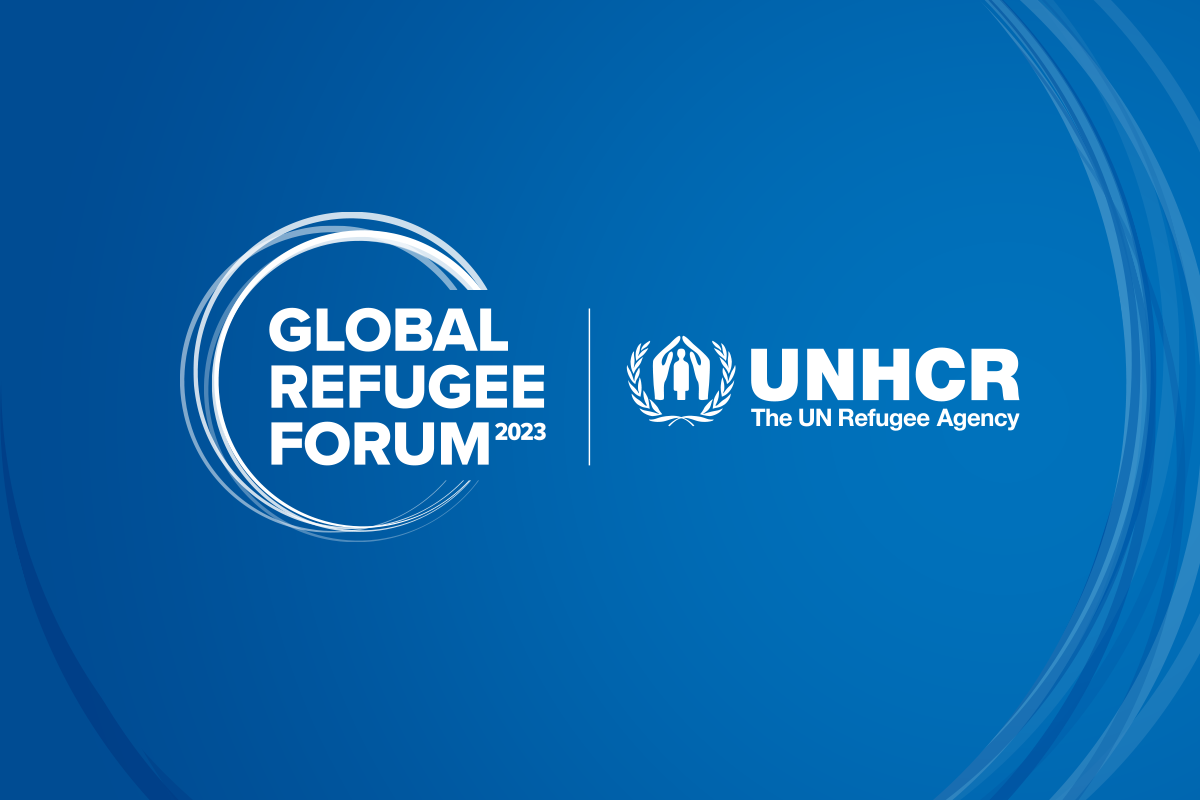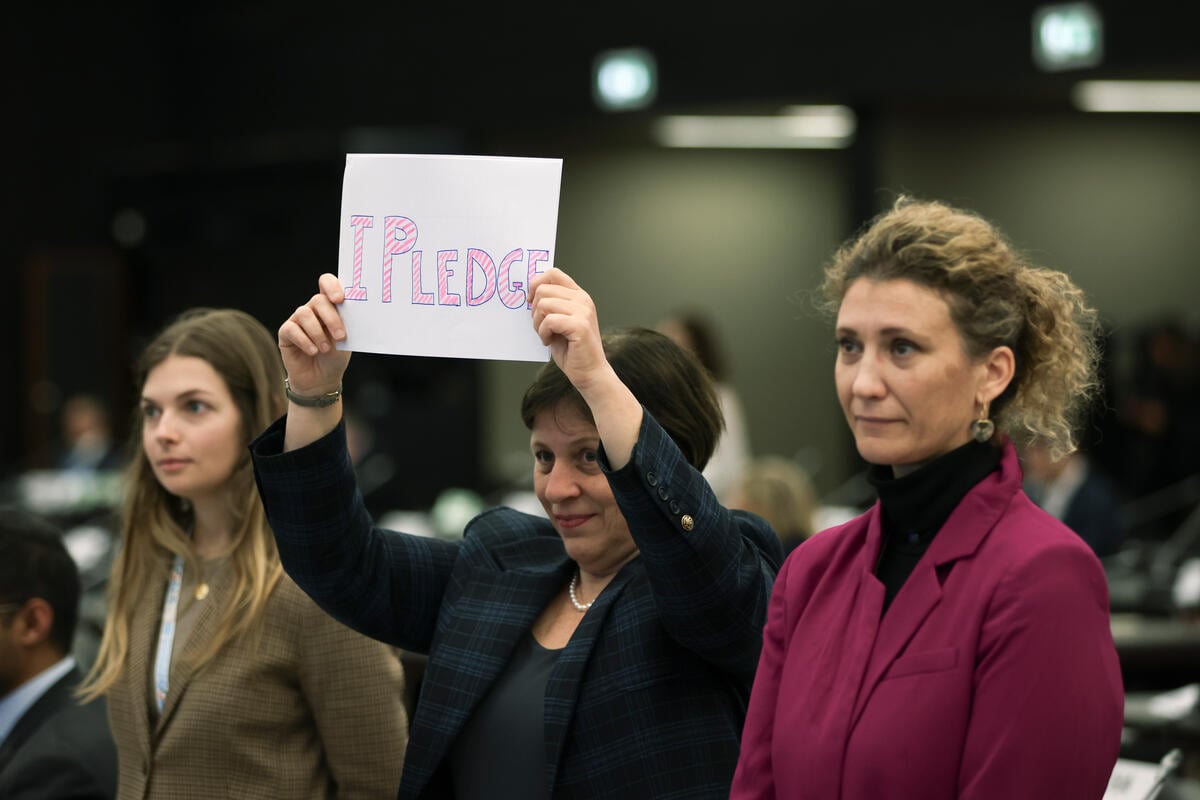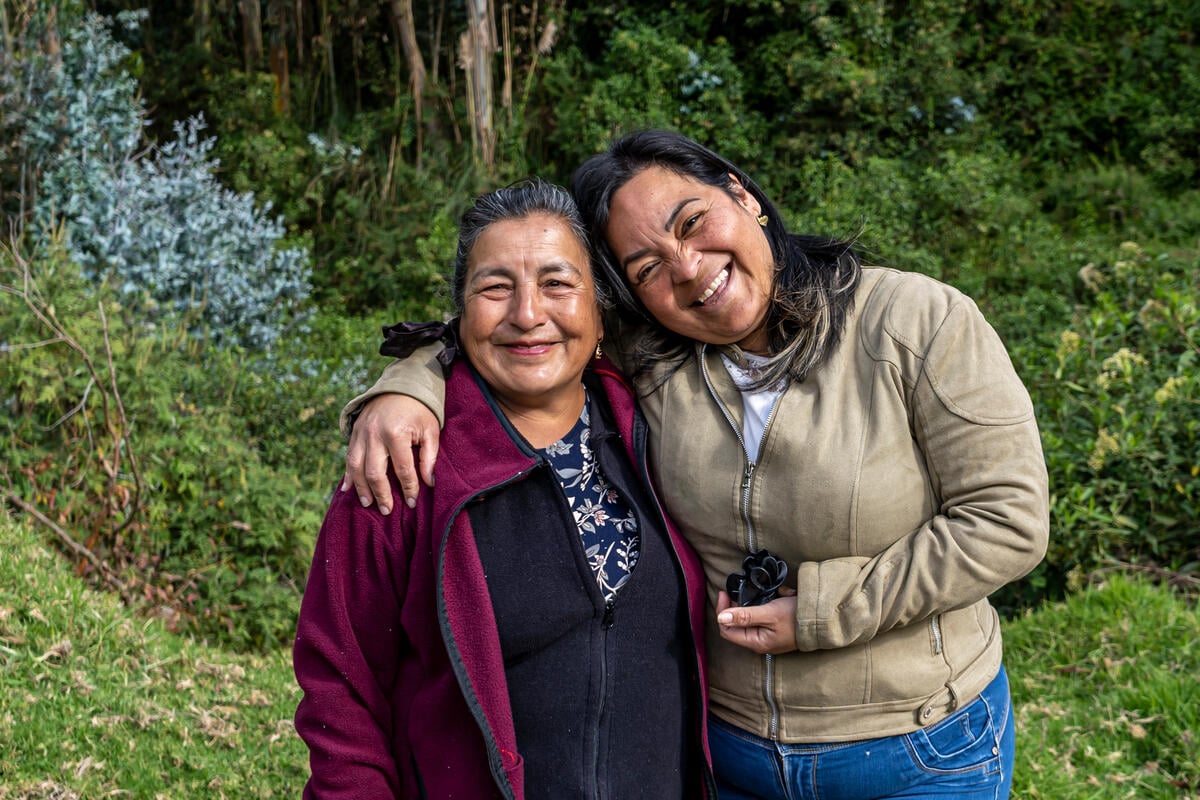Comment by Andrew Harper, UNHCR's newly appointed Special Advisor on Climate Action, who is attending this year's UN Climate Change Conference, known as COP 25, in Madrid
Comment by Andrew Harper, UNHCR's newly appointed Special Advisor on Climate Action, who is attending this year's UN Climate Change Conference, known as COP 25, in Madrid
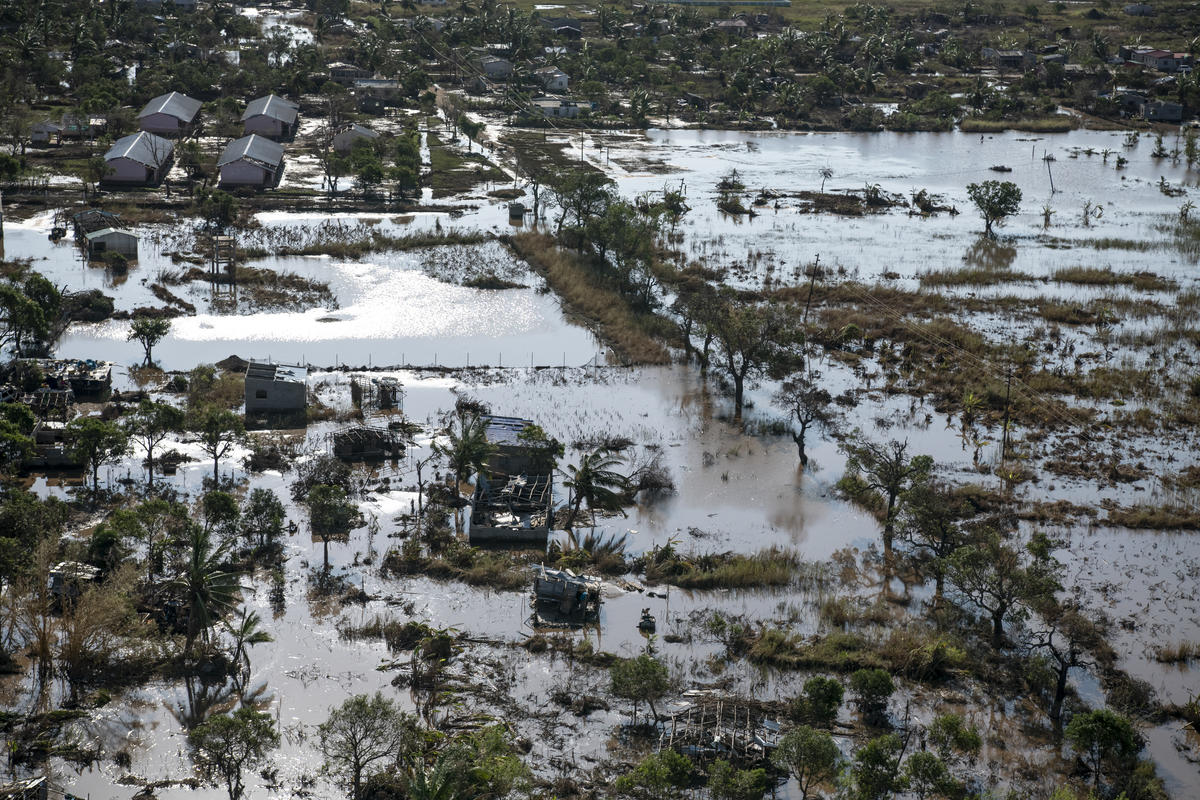
“With climate change amplifying the frequency and intensity of sudden-onset disasters, and contributing to fragility and conflict, more people will be at risk of displacement unless urgent action is taken.
In the first half of this year alone, and according to data from the Internal Displacement Monitoring Centre, storms, floods and other disasters led to several million new displacements - some of these being people displaced more than once.
We at UNHCR, the UN Refugee Agency, are also particularly concerned that the impact of climate change, including depleted natural resources, diminished crop yields and livestock shortages, will become threat multipliers for conflict and instability that can lead to humanitarian crises and further displacement, both internally and across borders.
Countries that are already fragile may be at further increased risk of erupting into conflict due to the effects of the changing climate. We are already seeing this play out in the Sahel, as one example.
In Somalia, a country highly vulnerable to climate change, more than 746,000 people have been displaced within the country since the beginning of the year as a result of intensified drought, floods and conflict.
In climate-vulnerable regions, frequently hit by natural disasters, the chances of refugees and internally displaced people (IDPs) returning home also diminish.
Populations that are already displaced, whether by conflict, violence or for other reasons, together with their local host communities have also been among those most exposed to the impacts of climate change.
Developing regions host 84 per cent of the world’s refugees and are often the most climate vulnerable. Extreme weather events and hazards in these refugee host regions are disrupting lives, exacerbating humanitarian needs and even forcing people to flee again.
This year, UNHCR field teams had to mount urgent humanitarian responses to worsening conditions and secondary displacement arising from disasters and weather hazards in a number of refugee host countries.
Most recently in October, unprecedented heavy flooding in South Sudan’s Maban County affected 200,000 Sudanese refugees and the local host community. In July, more than 2,100 Rohingya refugees had to be relocated in the Cox’s Bazar settlement in Bangladesh, as a result of monsoonal downpours and landslides; and in Zimbabwe, the Tongogara refugee camp, home to more than 13,000 refugees, also sustained damage caused by Cyclone Idai.
We need to do far more to help those states which have been doing everything they can to protect refugees, but are at the same time are often most exposed to the calamities of climate change. We cannot fail these states, or the most vulnerable who have sought refuge there.
Investing in, and supporting, at-risk states to reduce their vulnerability to the impacts of climate change is critical to enable those same states to adapt to future challenges while reinforcing their capacity to continue to protect displaced populations seeking shelter in their territory.
UNHCR is a protection agency facing a rapidly changing world with expertise to provide practical support to those refugee hosting states who, through no fault of their own, are either, or will be, on the front line in the battle against climate change within the coming decade.
We aim to work with states to protect those displaced, and assist host communities adapt to a more hostile environment.
As anticipatory action is critical in predicting, mitigating and preparing for upcoming crises, UNHCR is calling for urgent action including through enhanced early warning systems, evidence-based forecasting and disaster risk reduction strategies. And to scale up efforts on adaptation and resilience.
These measures can help ensure that communities can cope with hazards more effectively, including through diversifying their sources of livelihoods.
UNHCR is also calling on the international donor community to support specialised and comprehensive climate change adaptation solutions and the application of effective protection frameworks for climate-displaced populations.
The first ever Global Refugee Forum, a world meeting on refugees, which will be held this month in Geneva on 17 and 18 December, will be an occasion for the international community to pledge support and commit to action. Energy and climate is among its six themes.”

